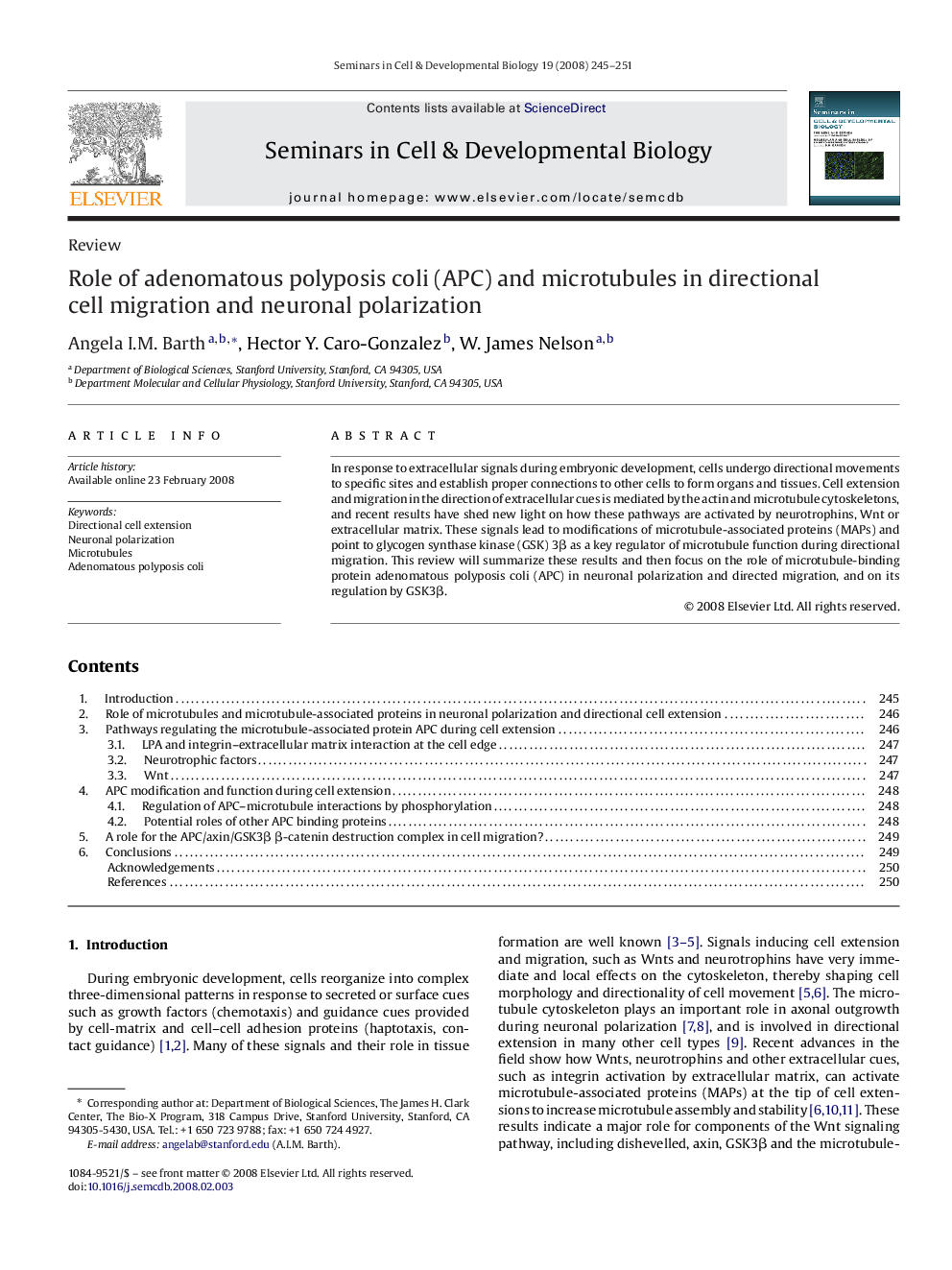| Article ID | Journal | Published Year | Pages | File Type |
|---|---|---|---|---|
| 2203274 | Seminars in Cell & Developmental Biology | 2008 | 7 Pages |
In response to extracellular signals during embryonic development, cells undergo directional movements to specific sites and establish proper connections to other cells to form organs and tissues. Cell extension and migration in the direction of extracellular cues is mediated by the actin and microtubule cytoskeletons, and recent results have shed new light on how these pathways are activated by neurotrophins, Wnt or extracellular matrix. These signals lead to modifications of microtubule-associated proteins (MAPs) and point to glycogen synthase kinase (GSK) 3β as a key regulator of microtubule function during directional migration. This review will summarize these results and then focus on the role of microtubule-binding protein adenomatous polyposis coli (APC) in neuronal polarization and directed migration, and on its regulation by GSK3β.
